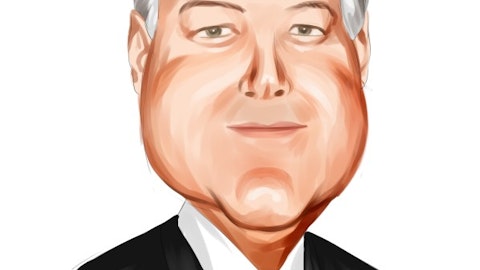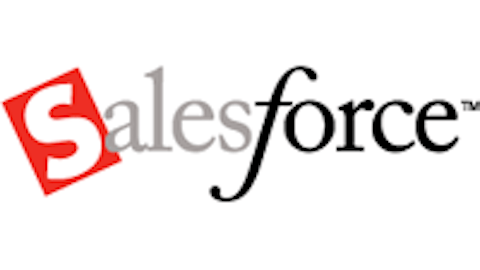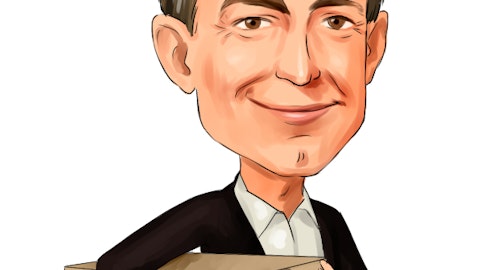At Insider Monkey we track more than 700 hedge funds, analyze their returns and closely follow the stocks they invest in. If you’re reading our website on a regular basis, you should already know that after each round of 13F filings, we compile tons of data about several thousand stocks regarding their level of “popularity”, so to say, among the hedge funds from our database. Even though the majority of institutional investors try to delay the filing of their Form 13F as long as possible, the deadline for reporting the holdings with the SEC is 45 days after the end of a calendar quarter. The obvious question that pops up is whether the delay in filings can erase the possibilities to profit from imitating hedge funds’ picks. However, this is not a problem, because the majority of funds invest with a long term horizon; the general rule is to hold shares for at least a year, while Warren Buffett believes the best thing an investor can do is buy stocks that will bring steady returns for decades.
Nevertheless, we have entered into the second quarter, which means that within the next 45 days, we should expect a new wave of Form 13Fs, which will reveal the equity portfolios of institutional investors. Meanwhile, let’s take a look at the past three months and the previous round of 13F filings in order to see how right or wrong the hedge funds have been. To do that, we are going to take a look at five of the most popular picks among the funds that we track as of the end of 2014. These stocks are from several sectors and are among the largest and best performing companies on the market. The average return of these five stocks is relatively small, only 5.5% during the first quarter, but they have greatly outperformed the S&P 500 ETF (SPY), which inched up by only 0.9% during the same period. In the following lines, we will take a closer look at these five companies, which are Apple Inc. (NASDAQ:AAPL). Citigroup Inc (NYSE:C), Actavis plc (NYSE:ACT), American Airlines Group Inc (NASDAQ:AAL), and Google Inc (NASDAQ:GOOGL).

Even though, the majority of these five stocks managed to beat Mr. Market during the first quarter, an investor that has a smaller amount of capital in comparison to the multi-million and multi-billion dollar equity portfolios of hedge funds, should think twice before buying them. For one reason, while some of these stocks have beaten the market, the odds of them keeping the same pace in the future are smaller. Moreover, due to the fact that these companies are very popular, they are priced more efficiently, which means that a retail investor won’t take advantage of some of the bigger opportunities that could generate much higher returns.
The price efficiency of these stocks is also confirmed by the average returns scored by equity hedge funds, which amounted to 11.1% in 2013 and 1.4% last year, which is abysmal compared to the returns of the S&P 500 ETF (SPY) of 32.3% and 13.5% during the previous two years. A similar conclusion comes from the results of our backtests that showed that the 50 most popular stocks among hedge funds between 1999 and 2012 underperformed the S&P 500 Total Return Index by an average of 7 basis points per month. However, a retail investor can generate much higher returns by following the small-cap picks of hedge funds, with their 15 most popular stocks beating the market by almost one percentage point per month in backtests and generating a cumulative return of some 132% in forward tests over the last 2.5 years. This means that imitating a portfolio of the 15 most popular small-caps among hedge funds could’ve outperformed the S&P 500 ETF (SPY) by some 79 percentage points since August 2012 (read more details about our strategy here).
Apple Inc. (NASDAQ:AAPL) is the most popular pick among hedge funds as of the end of 2014 and the investors have been right betting on the stock, since it gained 13.17% during the first three months of 2015 (the second-highest return among all five stocks) and was one of the top gainers among companies with a market capitalization of over $100 billion. The market value of the tech giant has recently topped $700 billion, which makes it the largest company in the world in terms of market cap. One of the reasons for the solid growth of the stock during the first three months is excellent financial results coupled with solid sales figures for iPhones during the fourth quarter. The company also announced a line of new generation Macbooks, and is preparing to release the Apple Watch, which is expected to arrive in stores at the beginning of April. So Apple not only managed to convince investors regarding its past performance, but also gave them something exciting to look forward to in the future. The Watch is expected to be a hit, and with an estimated gross margin of 45% the device will likely increase the bottom line in Apple Inc. (NASDAQ:AAPL)’s financial statements.
Apple Inc. (NASDAQ:AAPL) also has a lot of cash, which will most likely be used to buy back shares and for dividend payments, as well as possibly being used for some new acquisitions. All in all, we agree with the majority on the Street that Apple is a very exciting stock to hold and it’s clear to see why it is the most popular stock among hedge funds as well. In the last round of 13F filings, a total of 149 funds from our database disclosed holding shares of Apple Inc. (NASDAQ:AAPL), with an aggregate value of $20.88 billion. The largest shareholder among them is billionaire activist Carl Icahn, who owns 52.76 million shares.
Citigroup Inc (NYSE:C), on the other hand, being the second most popular choice among hedge funds, did not perform as well, and its stock actually declined by 4.77% during the first quarter. The stock lost ground even though Citigroup passed the recent stress-tests from the Federal Reserve, which gives it the green light to return capital to shareholders. Moreover, after failing the same test last year, the banking and financial services holding company scored the best result among all its peers from Wall Street. On the back of these results, Citigroup Inc (NYSE:C) already hiked its dividend to $0.05 per share (it was stuck at $0.01 after failing last year) and announced plans to buy back $7.8 billion worth of stock within the next 15 months, versus $1.2 billion spent over the last year.
In this way, 137 funds that held long positions totalling $11.27 billion worth of Citigroup Inc (NYSE:C)’s stock also have something to look forward to. One of these funds is Dan Loeb’s Third Point, which initiated a stake with 5.0 million shares during the fourth quarter of last year, joining the list of 13 other firms managed by billionaires that are also bullish on Citigroup Inc (NYSE:C).





